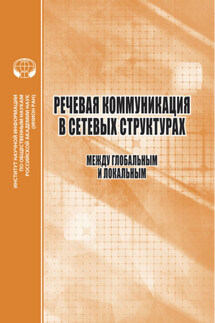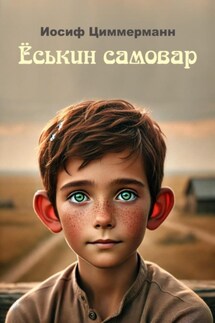Речевая коммуникация в сетевых структурах. Между глобальным и локальным - страница 13
Griffiths M.D. Internet addiction: an issue for clinical psychology? // Clin. Psychol. Forum. – 1996. – N 97. – P. 32–36.
Influence of the aggressive Internet environment on cognitive personality disorders (in relation to the Russian young generation of users) / Potapova R., Agibalova T., Potapov V., Tuchina O. // Lecture Notes in Computer Science / A. Karpov, R.K. Potapov (eds). – 2021. – Vol. 12997. – P. 516–527.
International prevalence of adolescent non-suicidal self-injury and deliberate self-harm / Plener P.L., Muehlenkamp J.J., Claes, L., Havertape L. // Child and Adolescent Psychiatry and Mental Health. – 2012. – N 6, Article 10. – URL: https://capmh.biomedcentral.com/articles/10.1186/1753-2000-6-10 (дата обращения: 10.03.2021).
Media content vs nature stimuli influence on human brain activity / Potapova R., Potapov V., Lebedeva N., Karimova E., Bobrov N. // Lecture Notes in Computer Science / A. Karpov, R. Potapova (eds.). – 2021. – Vol. 12997. – P. 528–539.
Medication and suicide risk in schizophrenia: a nested case-control study / Reutfors J, Bahmanyar S., Jönsson E., Brandt L., Bodén R., Ekbom A., Osby U. // Schizophrenia research. – 2013. – N 150(2/3). – P. 416–420.
Neurocognitive functions in pathological gambling: a comparison with alcohol dependence, Tourette syndrome and normal controls / Goudriaan A.E., Oosterlaan J., de Beurs E., van den Brink W. // Addiction. – 2006. – N 101(4). – P. 534–547.
Palmer B.A., Pankratz V.S., Bostwick J.M. The lifetime risk of suicide in schizophrenia: a reexamination // Arch Gen Psychiatry. – 2005. – N 62. – P. 247–253.
Pathological Choice: The neuroscience of gambling and gambling addiction / Clark L., Averbeck B., Payer D., Sescousse G., Winstanley C.A., Xue G. // Journal of Neuroscience. – 2013. – N 33(45). – P. 17617–17623.
Pathological gambling: a comprehensive review of biobehavioral findings / Goudriaan A.E., Oosterlaan J., de Beurs E., Van den Brink W. // Neuroscience & Biobehavioral Reviews. – 2004. – N 28(2). – P. 123–141.
Petry N.M. Discounting of probabilistic rewards is associated with gambling abstinence in treatment-seeking pathological gamblers // Journal of Abnormal Psychology. – 2012. – N 121(1). – P. 151–159.
Potapova R., Potapov V. Some comparative cognitive and neurophysiological reactions to code-modified Internet information // Lecture Notes in Computer Science / A. Karpov, R. Potapova (eds.). – 2020 – Vol. 12335. – P. 399–411.
Potenza M.N. The neural bases of cognitive processes in gambling disorder // Trends in Cognitive Sciences. – 2014. – N 18(8). – P. 429–438.
Quintero G. A biopsychological review of gambling disorder // Neuropsychiatric Disease and Treatment. – 2016. – N 13. – P. 51–60.
Reliability criteria of borderline personality disorder: A comparison of DSM-III and the Diagnostic Interview for Borderline Patients / Brown R., Frances F., Clarkin J.F., Gilmore M., Hurt S.W. // American Journal of Psychiatry. – 1984. – N 141. — P. 1080.
Rieger D., Dippold J., Appel M. Trolle gibt es nicht nur in Märchen – Das Phänomen Trolling im Internet // Die Psychologie des Postfaktischen. – Berlin; Heidelberg: Springer, 2020. – S. 45–58.
Risch J., Krestel R. Toxic comment detection in online discussions // Deep Learning-Based Approaches for Sentiment Analysis. – Singapore: Springer, 2020. – P. 85–109.






